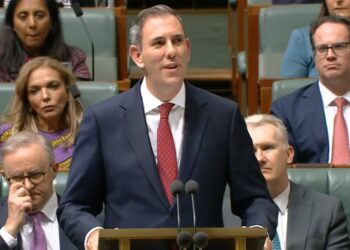Speaking to ifa, Michael Pinn said the FSI recommendation to ban direct borrowing by SMSFs is the result of the push by the banks to have greater control over investment choice, to the detriment of retail investors.
“Lobbying by institutions and vested interests continue to impact policy recommendations,” said Mr Pinn, who also heads up a Sydney-based financial advice and accounting firm.
“SMSFs were barred from using margin loans and other debt finance to purchase equities [and] now the same vested interests want to ban properly structured debt finance in direct property.
“The common theme seems to be that SMSF trustees – mums and dads – are either too dumb or too sneaky to be trusted with managing their own money.”
Mr Pinn said institutions and other vested interests are opposed to LRBAs because they have an underlying agenda to direct funds into “buying instalment warrants, investing in geared equities where someone else controls the money or some other more costly structure”, all of which generate revenue for these interests.
While the AIOFP director did concede there is legitimate need for “constructive guidelines and better education” on the issue, he said there was no evidence to suggest there is anything wrong with “properly structured geared investments”.
He added that an “independent adviser without vested interests” would be likely to raise a number of important issues with a client including the plausibility of negative gearing and tax considerations before advising them to gear into property in their SMSF.
The comments come as law firm Gadens issued a communication also condemning the FSI call to ban SMSF borrowing.
“Banning the ability for SMSFs to use leverage to build wealth inside the fund is likely to be a disincentive to the establishment of SMSFs, resulting in reduced competition and associated downward pressure on fees,” said partners Amber Warren and Jon Denovan in the document.




1)It is more than likely the lobbying is coming from the big industry funds
2)One of the main reasons people buy property in super is to get leverage as they can only contribute $25-$35K (age dependant) into super every year. This is a ridiculous amount and will leave many people short with funds to retire on. If they ban borrowing then the contribution amount must be significantly raised to compensate.
3)In every asset class there are good buys and bad buys (Babcock and Brown anyone?) and property is no different, trustees much research and get as much advice as possible before committing to a property.
4)There probably needs to be more regulation around this issue, but an overall ban on leverage smacks of lobbying from the shadows
5)Just because an ex-banker delivers a report doesnt make it fact, think the previous government and the Henry report, bugger all of that report made it into the real world.
You can check the SMSD stats at from the ATO at.
https://www.ato.gov.au/Super/S…
Hi DFS: According to a recent survey by Investment Trends, 40% of new SMSF trustees are setting up SMSFs so they can buy property.
This is not ANOTHER UNDERHAND SHOT as SMSF,s.
It is recognising a practice that does have a downside and needs cautous planning.
We probably are all in the SMSF sector but some of our risk profiles are drastically different.
You talk to any property fund manager or anyone who has been to an auction lately and they will confirm that it is the massive influx of money from China that is inflating our property prices. The amount LRBA property purchases by SMSFs pales into insignificance compared to this. Just another underhanded shot at SMSFs.
The real problem with SMSF with small balances is the extravagant accounting and audit fees charged by accountants Imagine the additional complexity in a LBRA. In addition to an audit fee and accounting fees and asic fees and other fees, the fees in running a smsf can easily be $5,000pa. On a fund that has $100k in equity thats 5%pa. If the client is only making 5% income net from property thats all their income going in fees. Investing in a Wrap account or small APRA fund looks cheap in comparison.
There has been absolutely no discussion on IFA about the rip off fees being charged by accountants and there needs to be. A lot of small investors are getting burned by these high fees charged by accountants
Having worked with Finance, real estate and FP’s over the last few years I would say there is equal blame to go around. The banks have certainly made it easy. Just look how many are offering LBRA solutions and how many Finance Brokers offering finance and how many SMSF have been established. The biggest growth has been in younger people with small balances taking it on themselves to set up a SMSF to buy property. These have been done WITHOUT input from a Financial Planner who have told them they need at least $200k.
The big problems are going to come when the Trustees lose their jobs, and can’t meet the commitments. Next year is going to be tough for all concerned particularly with the drop in commodity prices. Historically A recession usually follows. A lot of people who bought off the plan probably paid too much. If they have to sell property in a SMSF they will probably use all their equity. The banks won’t care and the real estate agents will get another commission.
anyone got any idea of the total number of SMSF’s that have been set up with the sole purpose of buying residential property through a LRBA?
I’m sorry but the claims of this nut just defy logic. Banks are in the business of lending money first and foremost. Lending to SMSF is a nice market that has opened up to them during pretty lean times in other areas especially business finance. Wealth management is important but more peripheral to the major operations of a bank. The suggestion that they would be lobbying for a ban on limited recourse borrowing is a claim developed in outer space by Mr Pinn. This does nothing for the credibility with AIOFP.
SMSF’s borrowing engaging in LRBA’s has been the road to wealth by Banks, real estate agents and sprukers. Most bank (if not all) require trustees to act as guarentors for the loans and charge large fees and higher interest rates on the loans. I would welcome borrowing in super to be abolished.
David Murray should be applauded for banning borrowing in SMSF’s.
What a foolish notion it was in the first place to allow members to put their retirement capital at risk via the use of debt.
Gear all you want outside super, but leave the lure of debt out of super altogether.
Michael Pinn and others commenting on LRBAs:
1. Don’t agree that banks “want better control over investment choice”. Every bank we work with has developed attractive LRBA packages and are actively promoting them as a source of lending business. Yes, the may make more money out of retail investments but they want into the SMSF market also.
2. There remains a genuine case for SMSFs to leverage to gain wealth. There are some dodgy promoters but what’s new about that? Every individual and corporate tax payer is able to negatively borrow for a vastly larger tax deduction too.
3. So, what’s the case to preclude a SMSF from borrowing then?